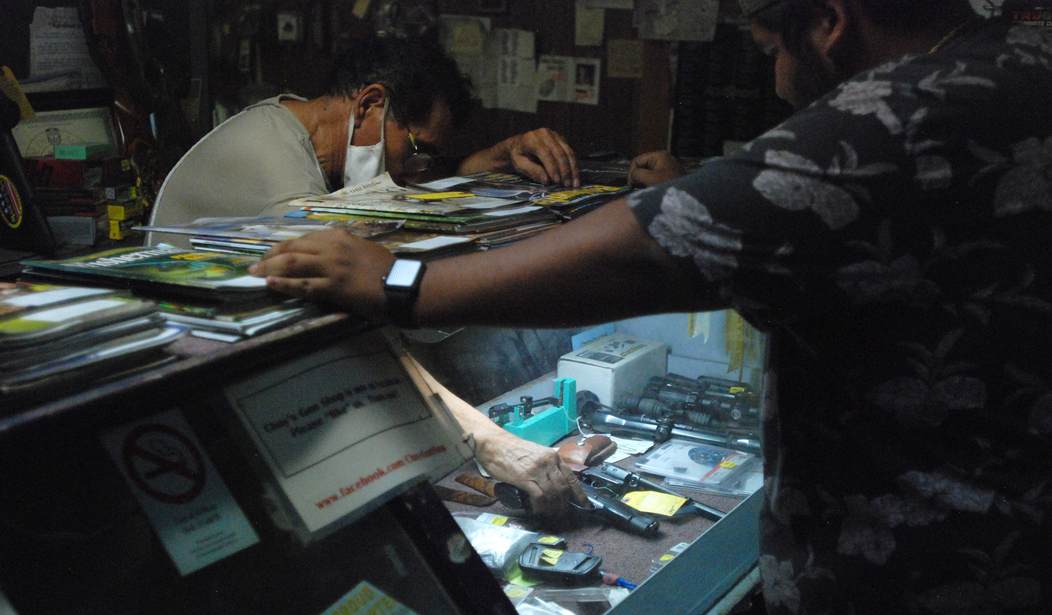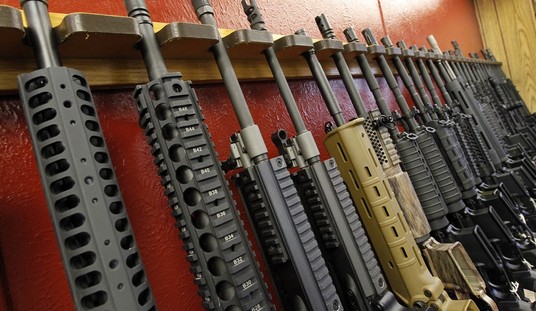George Brauchler has prosecuted multiple mass shooters over the course of his career as a Colorado District Attorney, so you might think he'd be all in favor of a new bill approved by Colorado lawmakers that supporters claim offers law enforcement a valuable new tool to identify potential killers before they carry out their attack.
Instead, Brauchler is speaking out against the legislation, which he says is far more likely to cause headaches and harm to lawful gun owners, firearms retailers, and financial institutions if it's signed into law by Gov. Jared Polis.
The bill in question would mandate the use of merchant category codes for retail gun shops; information that would be available for credit card companies and banks to scrutinize and look for "suspicious" activity. Backers of the bill argue that most mass shooters purchase their guns using a credit or debit card, so a specific merchant category code would allow those financial institutions to flag suspect purchases and prevent violent crimes from ever taking place, but Brauchler says his experience has shown that argument is seriously flawed.
The reason a podcast generated this bill, and not law enforcement based on legitimate data, is because it is a canard. Coloradoans experience is that such a law would not have prevented our most recent and most notorious mass shootings (I prosecuted the top three in the list).
Columbine: Two shotguns and a rifle were legally purchased from an unlicensed gun dealer at a gun show by one of the killers girlfriend. The Tec-DC9 handgun was purchased illegally and for cash.
Aurora Theater: The mass murderer used multiple methods of payment — including a bank card, PayPal and checks — to legally purchase the firearms, ammunition and body armor he used. He did that to avoid detection. Had this law existed then, this hypervigilant and evil intellect would have used cash to purchase everything. Of this, I have no doubt.
STEM School: The legally purchased, and long-term owned firearms were broken out of a safe with an ax and crowbar by the mass shooters and murderer of Kendrick Castillo.
Arapahoe High School: The killer legally purchased the shotgun with which he murdered Claire Davis and intended to murder numerous others.
Mountain Vista HS: The two would-be mass murderers were trying to obtain a firearm illegally from an individual (not a retail store), before their plot was discovered and stopped.
Club Q: The mass murderer illegally made and obtained the firearms he used. He could not have legally purchased a firearm from a retail store.
Boulder King Soopers: The mass murderer legally purchased the firearm he used. There was no “ to report.
What about preventing run-of-the-mill gun crimes? A U.S. Department of Justice Bureau of Justice Statistics report from a survey of prison inmates revealed that a mere 1.3% of them purchased firearms from a retail store.
Brauchler notes another big problem with the Colorado bill: what activity should be deemed "suspicious"? How are these credit card companies supposed to identify any potential bad actor solely through the purchase of a firearm or ammunition? The veteran prosecutor believes the bill ultimately incentivizes these companies to report as many purchases as possible so they can keep themselves out of trouble.
It takes no imagination to foresee that what this law creates is liability for the financial institutions, not for what they disclose, but for what they fail to disclose. Imagine victims of gun crime discovering that their loved ones assailant recently had made purchases of firearms and ammo prior to the murder — and the credit card company did not report it to the authorities. Lawsuits. Lots of them. It is irrelevant whether they are successful, because the cost of them is a liability and a cost that can only be prevented by either: 1) reporting every firearm transaction, or 2) refusing to accept firearm-coded purchases from the small retail gun shops. Goodbye, local retail gun shops.
Those are the goals, and the vehicle for them does not implicate the Second Amendment, because the bill cajoles private banking institutions into doing what the government never could. If our states experience with mass shootings is a predictor, this backdoor way of frustrating Coloradans’ ability to exercise their Second Amendment rights likely will save no lives.
I think that's right, and Colorado isn't the only state trying to mandate the use of these merchant category codes for gun stores. California's law mandating codes is set to take effect next May, and other blue states are likely to follow. Several red states, on the other hand, have adopted legislation that specifically prohibits the use of these codes by gun shops. That's the right thing to do from both a civil rights and a public safety perspective, and while that's not an option that's on the table in Colorado, Gov. Jared Polis can still veto Senate Bill 24-068 and prevent this backdoor attack on firearms retailers from becoming law.









Join the conversation as a VIP Member